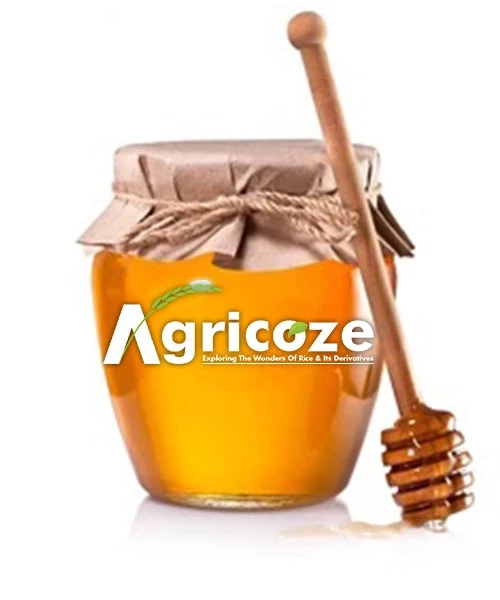Low Sugar Clarified Rice Syrup
Rice syrup is considered a healthier sugar alternative alongside honey, agave syrup and other sweeteners. You can find out here whether the chewy, sweet juice is actually better for your health and what special features it has.
It is well known that sugar is not very good for our health. Therefore, if you want to try to do without it partially or completely, there are various alternative options. Some swear by stevia or birch sugar , others honey or maple syrup.
Rice syrup: use, production and origin
Rice syrup is a light golden syrup that tastes mild and sweet. Since it doesn't have a particularly strong taste or aftertaste, you can use it in a variety of ways. For example, it is suitable for sweetening yoghurt or porridge, as a sweetener in the dough of cakes, muffins or biscuits or for caramelizing.
To make rice syrup, machines heat the ground rice and then break it down into sugars. This is how the sweet juice is extracted from the rice grain. The syrup then runs through filters and is finally thickened. Since rice syrup is thus completely vegetable, it is a vegan honey alternative . In Japan, the sweet juice has long been an integral part of traditional cuisine.
Since rice is grown in Asian countries such as China, Thailand or India in particular, rice syrup often has a poor eco-balance . After all, there are long transport routes during production, which release large quantities of greenhouse gases. To a small extent, some farmers also grow rice in southern Europe, for example in Italy or Spain.
We recommend that you pay attention to information about the origin of the rice grains when buying and that you prefer rice syrup from European cultivation. For example, according to the company, Reishunger's organic rice syrup comes from Italy. You should also buy organic rice syrup if possible. In this way you avoid chemical-synthetic pesticides that are harmful to your health and, in particular, drive insect mortality.
By the way, to extend the shelf life, it is best to store rice syrup in the refrigerator after opening.
Is Rice Syrup Healthier Than Sugar? When looking at the nutritional values, rice syrup performs only slightly better than conventional table sugar. According to Reishunger , the syrup has around 319 kilocalories per 100 grams. Alnatura's organic beet sugar , on the other hand, has 400 kilocalories. Both sweeteners contain only small traces of fat and protein.
Sugar is almost 100 percent carbohydrates, while in rice syrup they are only 80 percent. Of that 80 percent, sugar molecules make up 62 percent. This is also the reason that rice syrup does not taste as sweet as sugar. So you need more syrup to achieve the same sweetness. This also makes up for the calorie difference.
According to a Northwestern University nutritionist , our bodies treat rice syrup the same way it treats sugar. Our organism therefore does not recognize any difference between the sugar molecules. In addition, rice syrup has a higher glycemic index than sugar. This means that your body breaks down the syrup into glucose extra quickly. This process causes your blood sugar levels to rise and fall rapidly. As a result, you will only feel full for a short time and will soon feel hungry again.
There is also no evidence that rice syrup would contain a particularly large number of micronutrients (such as vitamins or minerals). Even if these are available in moderation, they hardly make an important contribution to covering our daily needs. There is not enough substantiated evidence to support the thesis that rice syrup is healthier than sugar. But with both sweeteners, the dose makes the poison. As part of a balanced diet, it is not a problem to eat sweets from time to time.
From an ecological perspective, rice syrup from Europe is definitely more climate-friendly than maple or agave syrup. These often come from even more distant growing areas. Even better sweeteners would be, for example, apple or pear syrup, sugar beet syrup or beet sugar from German cultivation.
Hidden sugar in food: the sugar traps exposed
Life without sugar: How to succeed with a sugar-free diet
Healthy agave syrup?
Two disadvantages of the sweetener. Today, let's discover a new alternative to sugar with rice syrup. The interest of this syrup lies in the fact that it allows the body a gradual assimilation of sugars.
Less known to the general public, rice syrup comes from the fermentation of rice grains. There is a brown rice syrup, resulting for its part from the fermentation of grains of rice and barley. Rice syrup has the advantage of containing different sugars which are not assimilated at the same time: glucose is absorbed quickly, while it will take 2 to 3 hours for the complete absorption of long sugars. These different absorption rates make it possible to provide the body with energy in a constant and prolonged manner.
Its flavor and texture: Rice syrup has a mild flavor and its consistency resembles that of honey. Amber in color, its taste is reminiscent of caramel.
Why replace sugar with rice syrup?
Rice syrup has a strong sweetening powerIt is naturally gluten free

